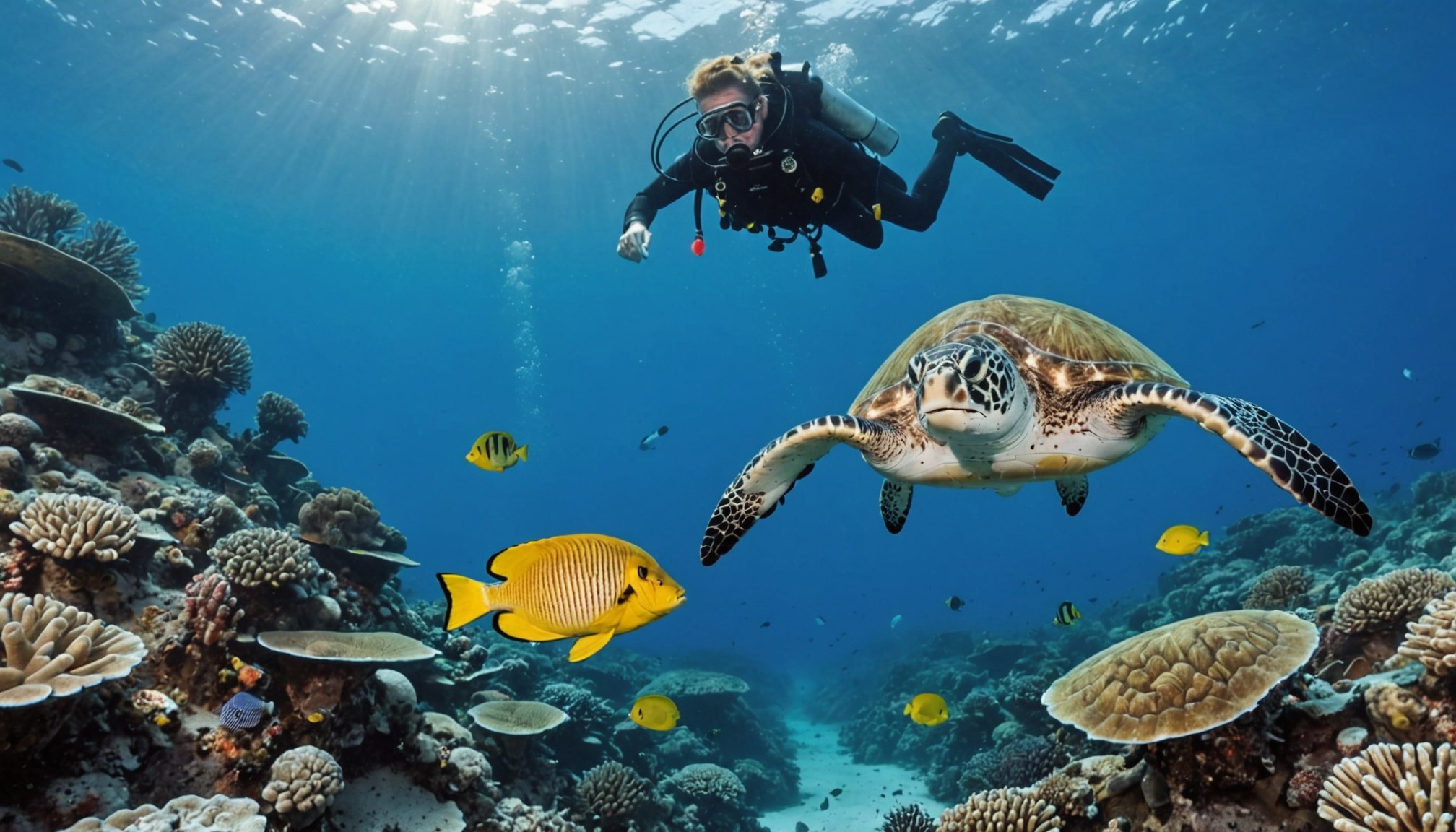Launching a Marine Conservation Consultancy in the UK: A Comprehensive Guide
Understanding the Need for Marine Conservation
Marine conservation is more critical now than ever, given the alarming rate of climate change and its impact on our oceans. The UK, with its extensive coastline and rich marine biodiversity, is at the forefront of this effort. If you’re passionate about protecting the marine environment and are considering launching a marine conservation consultancy, here’s a detailed blueprint to guide you through the process.
Setting Up Your Consultancy
Choosing the Right Structure
When setting up your consultancy, you need to decide on the legal structure that best suits your needs. Here are a few options:
Also read : Unlocking uk liquor licensing: the essential guide for your virtual wine tasting enterprise
- Sole Trader: This is the simplest and most common structure for a new business. However, it offers no liability protection.
- Limited Company: This structure provides liability protection and can be more attractive to clients and investors.
- Charitable Organization: If your primary goal is to benefit the public and the environment, registering as a charity can provide tax benefits and enhance your credibility.
Registering Your Business
Regardless of the structure you choose, you’ll need to register your business with the relevant authorities. For a limited company, this involves registering with Companies House. You’ll also need to obtain any necessary licenses and permits to operate in the marine conservation sector.
Building Your Team
A successful consultancy needs a team with diverse skills and expertise. Here are some key roles to consider:
Also to discover : Unlocking success: the ultimate blueprint for starting your renewable energy storage venture in the uk
- Marine Biologists: Experts in marine ecosystems and biodiversity.
- Environmental Scientists: Specialists in water quality, pollution, and climate change.
- Policy Analysts: Professionals who understand government policies and regulations.
- Project Managers: Experienced in managing projects from inception to completion.
- Communications Specialists: Experts in public engagement and stakeholder management.
Understanding UK Marine Conservation Policies and Regulations
Key Legislation and Policies
The UK has several key pieces of legislation and policies that govern marine conservation:
- Marine and Coastal Access Act 2009: This act established the Marine Management Organisation (MMO) and introduced the concept of Marine Protected Areas (MPAs).
- Environment Act 2021: This act sets out a framework for environmental governance, including targets for improving water quality and reducing pollution.
- Net Zero Target: The UK government has set a target to achieve net zero greenhouse gas emissions by 2050, which includes reducing emissions from marine activities.
Working with Government Agencies
Building relationships with government agencies such as the Environment Agency, the Department for Environment, Food and Rural Affairs (Defra), and the MMO is crucial. These agencies provide guidance, funding opportunities, and regulatory oversight.
| Agency | Role |
|
|----------------------------------------------------------------------|
| Environment Agency | Regulates and monitors environmental activities, including water quality. |
| Defra | Develops and implements environmental policies. |
| MMO | Manages marine activities, including the designation of MPAs. |
| Wildlife Trusts | Non-profit organizations involved in conservation efforts. |
Developing Your Services
Core Services
Your consultancy should offer a range of services tailored to the needs of your clients. Here are some core services to consider:
- Environmental Impact Assessments: Evaluating the potential impact of projects on marine ecosystems.
- Conservation Planning: Developing plans for protected areas and marine reserves.
- Research and Monitoring: Conducting scientific research and monitoring programs to understand and mitigate the effects of human activities on marine environments.
- Policy Advice: Providing guidance on marine conservation policies and regulations.
- Public Engagement: Facilitating public participation and education on marine conservation issues.
Case Study: RWE’s SeaMe Project
A notable example of innovative marine conservation work is RWE’s SeaMe project. This project, launched in the North Sea, uses advanced technologies such as drones and AI-powered submersibles to monitor and minimize the impact of offshore wind farms on marine ecosystems. This kind of project demonstrates the importance of integrating technology and science in marine conservation efforts.
Securing Funding and Grants
Government Grants
The UK government and various agencies offer grants for marine conservation projects. For example, the MMO provides funding for projects that support the development of MPAs.
Private Funding
Private foundations and organizations, such as the Wildlife Trusts, also offer grants for conservation projects. Building relationships with these organizations can be crucial for securing funding.
Crowdfunding
Crowdfunding platforms can be an effective way to raise funds for specific projects, especially those with strong public engagement components.
Building Partnerships and Collaborations
Working with NGOs and Community Groups
Collaborating with NGOs like the Marine Conservation Society and local community groups can enhance your credibility and reach. These partnerships can also provide valuable insights and resources.
Industry Partnerships
Partnering with companies involved in marine activities, such as water companies and renewable energy providers, can help in developing sustainable practices and reducing environmental impact.
| Organization | Role |
|
|----------------------------------------------------------------------|
| Marine Conservation Society | Advocates for marine conservation and provides scientific expertise. |
| Local Community Groups | Engages local communities in conservation efforts. |
| Water Companies | Implements sustainable water management practices. |
| Renewable Energy Providers | Develops sustainable energy solutions with minimal environmental impact. |
Engaging the Public
Public Awareness Campaigns
Public engagement is a critical component of any successful marine conservation effort. Here are some strategies to engage the public:
- Educational Programs: Developing educational materials and workshops to raise awareness about marine conservation.
- Community Events: Organizing beach cleanups, marine life surveys, and other community events.
- Social Media: Utilizing social media platforms to share information and engage with the public.
Quote from a Marine Conservationist
“Public engagement is not just about informing people; it’s about empowering them to take action. When people understand the importance of marine conservation, they are more likely to support and participate in conservation efforts,” says Dr. Jane Smith, a leading marine conservationist.
Managing Projects Effectively
Project Planning
Effective project management is key to the success of any marine conservation project. Here are some steps to follow:
- Define Objectives: Clearly define the project’s objectives and outcomes.
- Develop a Plan: Create a detailed project plan, including timelines and budgets.
- Assign Roles: Assign roles and responsibilities to team members.
- Monitor Progress: Regularly monitor the project’s progress and adjust the plan as necessary.
Case Study: The Development of Marine Protected Areas in Northern Ireland
The development of MPAs in Northern Ireland is a prime example of effective project management. The process involved extensive stakeholder engagement, scientific research, and policy development. The result has been the establishment of several protected areas that are crucial for marine biodiversity.
Adapting to Climate Change
Understanding Climate Change Impacts
Climate change has significant impacts on marine ecosystems, including rising sea temperatures, ocean acidification, and changes in species distribution.
Developing Climate-Resilient Solutions
Your consultancy should focus on developing solutions that are resilient to climate change. Here are some strategies:
- Nature-Based Solutions: Implementing nature-based solutions such as restoring mangroves and coral reefs to protect coastlines.
- Renewable Energy: Promoting the use of renewable energy sources to reduce greenhouse gas emissions.
- Adaptive Management: Adopting adaptive management practices that can respond to changing environmental conditions.
Launching a marine conservation consultancy in the UK requires a deep understanding of the sector, strong partnerships, and effective project management. By following this blueprint, you can establish a consultancy that makes a significant impact on marine conservation.
Final Thoughts
“Marine conservation is not just about protecting the environment; it’s about ensuring the long-term health of our planet. Every effort, no matter how small, counts in this journey,” says John Taylor, a veteran marine conservationist.
By combining scientific expertise, public engagement, and collaborative efforts, your consultancy can play a vital role in protecting the marine environment for future generations.
Additional Resources
Detailed Bullet Point List: Steps to Launch a Marine Conservation Consultancy
-
Research and Planning:
-
Conduct market research to understand the demand for marine conservation services.
-
Develop a business plan, including financial projections and marketing strategies.
-
Identify key stakeholders and potential partners.
-
Registration and Licensing:
-
Register your business with the relevant authorities.
-
Obtain necessary licenses and permits.
-
Ensure compliance with all relevant regulations.
-
Team Building:
-
Hire experts in marine biology, environmental science, policy analysis, project management, and communications.
-
Develop a strong team culture focused on marine conservation.
-
Service Development:
-
Define your core services, including environmental impact assessments, conservation planning, research and monitoring, policy advice, and public engagement.
-
Develop case studies and testimonials to demonstrate your expertise.
-
Funding and Grants:
-
Apply for government grants and private funding opportunities.
-
Explore crowdfunding options for specific projects.
-
Build relationships with potential funders and partners.
-
Public Engagement:
-
Develop public awareness campaigns and educational programs.
-
Organize community events and engage with local communities.
-
Utilize social media to share information and engage with the public.
-
Project Management:
-
Define project objectives and outcomes.
-
Develop detailed project plans, including timelines and budgets.
-
Assign roles and responsibilities to team members.
-
Regularly monitor project progress and adjust plans as necessary.
-
Adapting to Climate Change:
-
Understand the impacts of climate change on marine ecosystems.
-
Develop climate-resilient solutions, including nature-based solutions and renewable energy.
-
Adopt adaptive management practices.
Comprehensive Table: Comparison of Key Agencies Involved in Marine Conservation
| Agency | Role | Funding Opportunities | Public Engagement |
|---|---|---|---|
| Environment Agency | Regulates and monitors environmental activities, including water quality. | Yes | High |
| Defra | Develops and implements environmental policies. | Yes | Medium |
| MMO | Manages marine activities, including the designation of MPAs. | Yes | High |
| Wildlife Trusts | Non-profit organizations involved in conservation efforts. | Limited | High |
| Water Companies | Implements sustainable water management practices. | Limited | Medium |
| Renewable Energy Providers | Develops sustainable energy solutions with minimal environmental impact. | Yes | Medium |
By leveraging these resources and following the steps outlined, you can establish a successful marine conservation consultancy that makes a meaningful difference in protecting the world’s oceans.










